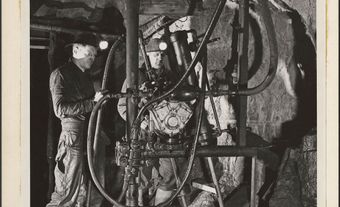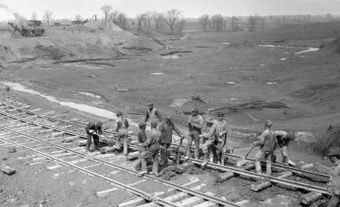Quebec has 4 central labour unions: the Confederation of National Trade Unions, the Quebec Federation of Labour, the Quebec Labour Congress and the Congress of Democratic Trade Unions. The Quebec Federation of Labour is the largest trade union association in Quebec.
Union Centrals
Quebec has 4 central labour unions. The Confederation of National Trade Unions (Confédération des syndicats nationaux, also known by its French acronym CSN) was founded in 1921 as the Canadian Catholic Federation of Labour. The Quebec Federation of Labour (Fédération des travailleurs et travailleuses du Québec), which includes international unions and national affiliates of the Canadian Labour Congress (CLC). The Quebec Labour Congress (Centrale des syndicats du Québec, also known by the French acronym CSQ). The Congress of Democratic Trade Unions (Central des syndicats démocratiques, also known by its French acronym CSD), which formed in June 1972 following a break away from the CSN.
Quebec Federation of Labour
The largest union association in Quebec is the Quebec Federation of Labour (also known by its French acronym FTQ). The FTQ is the CLC's Quebec wing, with over 600,000 members. In the past, its member unions belonged mostly to international unions affiliated with the American Federation of Labor and Congress of Industrial Organizations (AFL-CIO) and headquartered in the US, but since the 1980s the FTQ have been mostly linked to Canadian unions such as the Canadian Union of Public Employees or the Canadian Union of Postal Workers. The FTQ provides union information and education, but its main task is to represent unions affiliated with the CLC to the Quebec government and its administrative bodies.
The FTQ was the result of the 1957 merger of the Provincial Federation of Labour of Quebec (PFLQ) and the Federation of Industrial Trade Unions of Quebec (FITQ). This merger followed the 1955 example of the union between the American giants, the American Federation of Labor (AFL) and the Congress of Industrial Organizations (CIO), and of their Canadian counterparts, the Trades and Labor Congress and the Canadian Congress of Labour, into the Canadian Labour Congress (CLC). The new FTQ was strongly influenced by the industrial unions of the FITQ than by the craft unions of the PFLQ. The federation kept its distance from the Duplessis government, supported the New Democratic Party and took some militant stands (e.g., the Murdochville Strike).
The FTQ changed significantly in 1964-65, when Louis Laberge became president and the position of permanent secretary-general was created. Threatened by the CSN (in both membership and influence), the FTQ sought greater independence from the CLC and toughened its criticism of the capitalist system and of governmental action, publishing such manifestos as L'État, rouage de notre exploitation (1971) and Le combat inévitable (1973). It participated in major strikes, including that at La Presse in 1971 and the United Aircraft strike and the Common Front strikes.
Leaning gradually towards the independence option, it supported the Part Québécois in provincial elections (except 1985) and suggested to its members that they vote for the political independence of Quebec in the Referendums of 1980 and 1995. In the years since the economic recession of the early 1980s, the militancy of its members weakened and its social critique waned. The federation is tempted by the policy of "conflicting consultation" with management to achieve greater efficiency and competitiveness. It is especially proud of the originality of its Fonds de solidarité FTQ, which invests in firms to create and maintain jobs.

 Share on Facebook
Share on Facebook Share on X
Share on X Share by Email
Share by Email Share on Google Classroom
Share on Google Classroom


